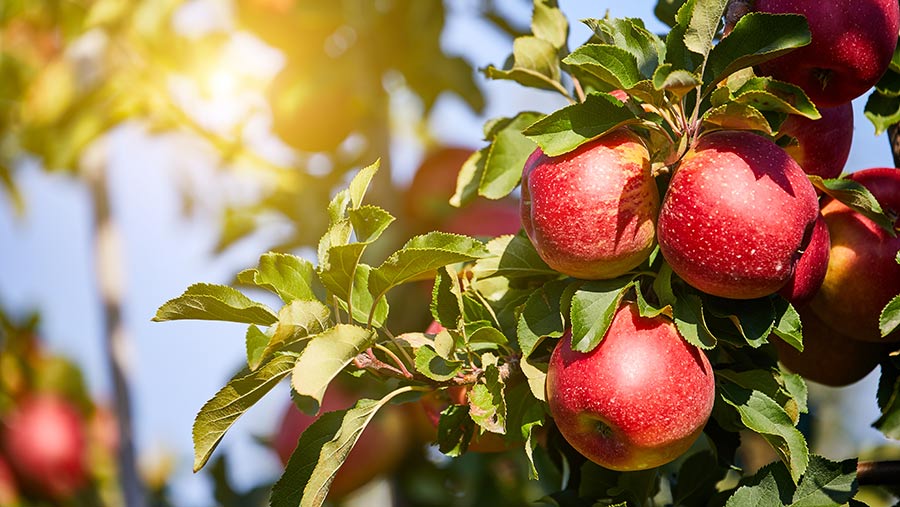Opinion: Supermarkets exploit the ‘farm to fork’ disconnect
 © ZoomTeam/Adobe Stock
© ZoomTeam/Adobe Stock Doing some work on Kent fruit farms in October, dodging showers and gangs of pickers as I walked round, I was greeted everywhere by the signs of autumn; leaves turning, fieldfares chattering, and fallen fruit.
Fruit falls in autumn, of course, and some is discarded by the pickers as undersized or blemished, but this was different. There was lots of it, and lots still on trees because it wouldn’t be picked.
In a world of shortage this is an appalling waste, made worse by the price offered being so low it is often just not economic to harvest it.
See also: Retailers accused of failing UK farmers with imported eggs
If you think you had it hard this year because you had to put a combine in a field and pile the result up in a shed, spare a thought for fruit growers.
Despite spiralling costs and the difficulties of getting labour, compounded by a blistering summer followed by a wet autumn, they produced a large volume of the highest quality fruit.
At which point the supermarkets, with their massive buying power and global reach, source their fruit from somewhere else because it’s cheaper…
They may boast about supporting British, but a look at your fresh produce shelves will tell you how real that claim is – and all while demanding the highest level of environmental compliance and protection.
With a quarter of all households saying they are struggling financially, the record hike in their grocery bills makes the supermarkets they shop at jittery.
They will pass rising costs back to the grower if they can by asking that they take a cut in price, or they’ll go elsewhere. Take it, and pick at a loss, or leave it.
Ah, you say, but you don’t have to shop at supermarkets – buy local.
By the time you read this, our village bakery will be shut. It can’t support a hike in energy costs from £5,000 to £28,000 or pass it on to its consumers, or back to its other suppliers.
Small batch manufacture of a craft product of course has no economies of scale or round the clock production.
It will not be the only artisanal food business to go.
A cheap food policy is coming back to bite us, highlighting the iniquities of the “just in time” supply system with its wafer-thin margins, and the power imbalance and disconnect from their market with which primary producers are shackled by global commodity production.
How interesting, then, to hear Angus Thirlwell of Hotel Chocolat talking about his realisation that, over 100 years, things have got worse in terms of the connection between the consumer and profit side, and what he called the agricultural side of chocolate production which, as he puts it, is where the magic begins.
Over time, he went on, farmers have become more disconnected and more disenfranchised from the revenues that come from “making lots of people happy with an amazing product”.
For chocolate, read just about anything we grow; cabbages, wheat – and fruit.
Supermarkets succeed because this disconnection standardises food and makes people look at price and cosmetic appearance above all else.
Until we make the connection again, growers will always be on the back foot.
But there was magic in those orchards, among the golden leaves and the staccato of the fieldfares; and an amazing product.

